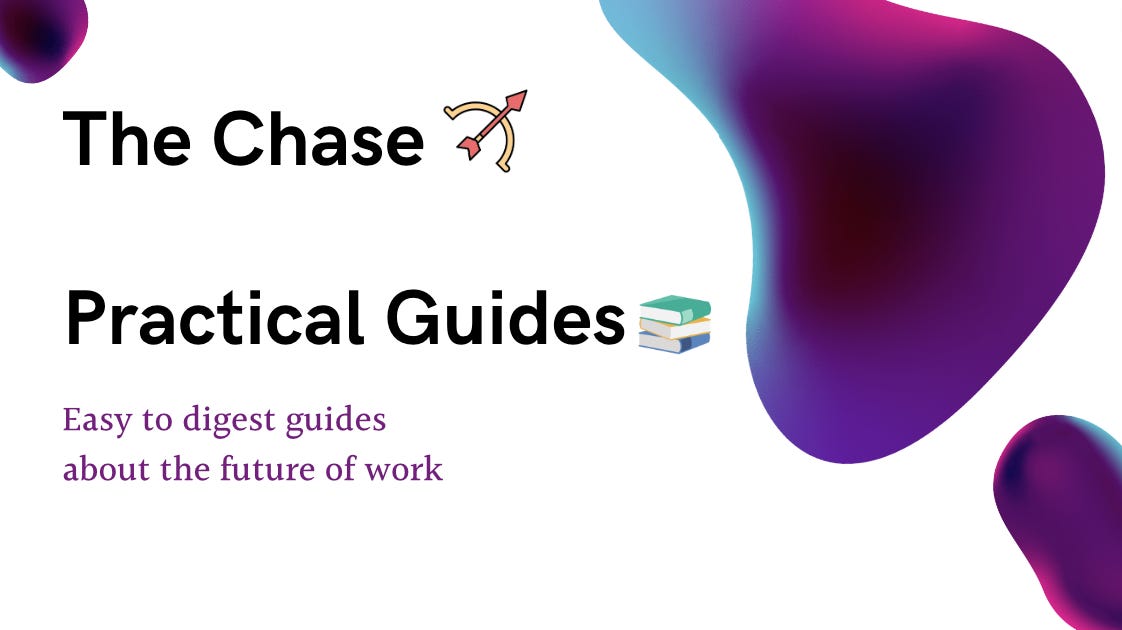🤲 Employee Recognition - on the Blockchain?
Recognizing peers at work is powerful, but we need to fix some fundamental issues
Performance Reviews and Peer Feedback
The majority of companies have annual performance review cycles, where employees are evaluated by their managers against their business and development goals, usually through frameworks similar to OKRs.
A smaller portion also include peer feedback, where colleagues and team members get a chance to chip in.
There’s a few problems with this approach:
⏳Timeliness - Once, in best cases twice a year, isn’t enough. You’re basically called to rely on your memory for a long time frame, which usually is distorted by most recent or particularly ‘strong’ events.
💂Uniformity - It’s still useful, but it’s an approach that bets on one-size-fits-all, providing the same questions and criteria of evaluation to teams that are very different from each other.
🔧 Tool Overload - On average, an employee needs to use more than 20+ business tools. That’s a lot. And the more you add, the more stress or less usage, especially if they’re not integrated.
✅Validity - Ok, you got a ‘kudos’ from one of your teammates, or a good score on the peer review. Maybe if it’s on Linkedin you can get a few likes here and there, but what’s the usefulness after that?
📜 History and Portability - Where are these ‘kudos’ stored? Can you port them from one company to another?
Current Employee Recognition Software
There’s tons of software out there that have been trying to solve this problem, with different takes on it. Some examples:
Shoutouts with point systems and rewards - Tools like Nectar, Bonusly, Awardco, allow peers and managers to recognize for specific actions and provide points that can be spent on Amazon or other pre-decided rewards (also experiences, travel etc)
Recognition inside of Employee Experience Platforms - A little bit more useful are those that are integrated into more holistic platforms that also cater to checking employee satisfaction scores and frequent check-ins, like Empuls for example. This reduces the tool overload problem.
Emotional-Centric - Tools like Tellinga go for the emotional value in sharing stories and moments, turning photos into postcards.
Obvious benefits of these are:
Employee Retention
Employee engagement
Frequent Goal alignment
Using the Blockchain
One way to solve a few of the problems above, is to use blockchain technology. A company that has tried to take stab at this is Kudos, which basically allows to create NFTs for recognitions and celebrations.
It does span out to a few more use cases, like:
Tracking participation and attendance of events
Educational Certifications
Awards & Prizes
It’s a great idea - putting this on the chain makes employees owners of this information, and make it portable through time (the problem I have with any type of business software/tool is that tenure is 2/3 years now on average, and having any personally valuable career credential tied to the company makes it totally useless).
It’s also created (the real term is ‘minted’) as a Soulbound token, which is basically a way to make it non-transferrable / sellable. This way it’s always yours and you can’t game the system.
Drawbacks: Obviously the main drawback, for now, is that you need to have a wallet and use things like Metamask, but even more that adoption is still quite low and it can be hard to promote something like this at a bigger company.
Also not 100% sure of the feature where you can mint a Kudos for yourself, I would think it defies its purpose.
Trust - This is a problem regardless of the technology - how can you trust single, specific shoutouts/recognitions? Would they need to be validated by others or through some type of threshold?
This is more of a philosophical dilemma - but may have to be considered also when we think of another important topic.






